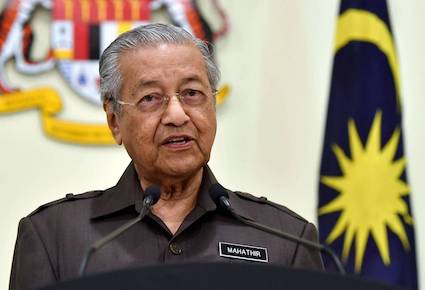Opposition blocking reforms, says Dr Mahathir

(MMO) – Prime Minister Tun Dr Mahathir Mohamad said today some Pakatan Harapan (PH) election promises in their manifesto could not be implemented as they needed a two-thirds parliamentary majority backing.
He also blamed the Opposition bloc as another reason for stalled reforms.
Dr Mahathir gave an example of restoring the Malaysia Agreement 1963 (MA63) which aims to restore parity between peninsular Malaysia, Sabah and Sarawak.
“We have done many things. However, regarding creating and dropping several laws, Constitution Amendments are needed. It should get support from Opposition parties as well.
“For example, to agree on restoring three territories parity in (MA63) Malaysia, the Sarawak parliament did not agree.
“It’s not that we did not want to change the law, but we need majority in Parliament,” he told a press conference after attending the Chinese New Year Celebration organised by Kuala Lumpur — Selangor Chinese Assembly Hall today.
Dr Mahathir also said some promised manifestos including the death penalty abolishment and the Independent Police Complaints of Misconduct Commission (IPCMC) have also received resistance from the stakeholders themselves.
“We want to abolish the death penalty but some (of the victims’) families did not agree.
“Now we are focusing to abolish only the mandatory one regarding drugs and things like that.
“Another example is the creation of the body (IPCMC), some police did not agree. We have to see that because we are afraid that the police (force) could not run after the implementation (of IPCMC),” he said.
Dr Mahathir elaborated this after a statement from former Transparency International — Malaysia (TI-M) Datuk Akbar Satar’s statement yesterday that the Corruption Perception Index (CPI) might go down again if PH failed to implement reform promised by then in their last election manifesto.
TI-M announced on Wednesday that Malaysia CPI 2019 jumped 10 places to 51 compared to the previous year.
It scored 53 points compared to 47 points in the 2018 index when it was ranked 61 out of 180 countries surveyed.
A higher score indicates better public perception.
TI’s CPI measures public sector corruption including bribery, diversion of public funds, use of public office for private gain, and nepotism in the civil service.
The ranking is the highest for the country since 1998.

